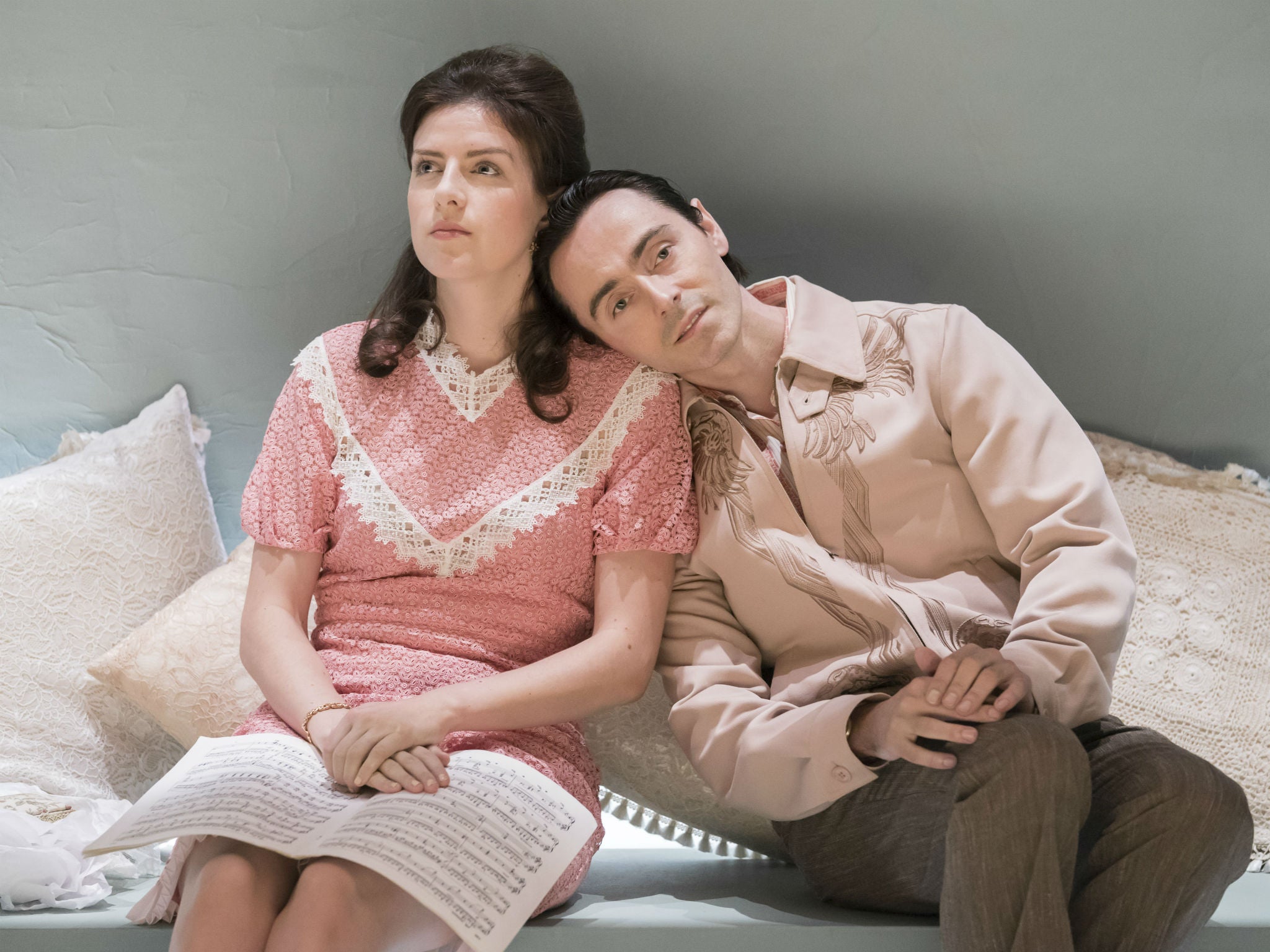Aristocrats, Donmar Warehouse, London, review: A fresh and arresting revival
Lyndsey Turner, the director of the Benedict Cumberbatch ‘Hamlet’ and Lucy Kirkwood's ‘Chimerica’, directs the first major revival of Brian Friel’s 1979 play since the writer’s death three years ago

Your support helps us to tell the story
From reproductive rights to climate change to Big Tech, The Independent is on the ground when the story is developing. Whether it's investigating the financials of Elon Musk's pro-Trump PAC or producing our latest documentary, 'The A Word', which shines a light on the American women fighting for reproductive rights, we know how important it is to parse out the facts from the messaging.
At such a critical moment in US history, we need reporters on the ground. Your donation allows us to keep sending journalists to speak to both sides of the story.
The Independent is trusted by Americans across the entire political spectrum. And unlike many other quality news outlets, we choose not to lock Americans out of our reporting and analysis with paywalls. We believe quality journalism should be available to everyone, paid for by those who can afford it.
Your support makes all the difference.Lyndsey Turner is best known for being the director of the Benedict Cumberbatch Hamlet and the huge Lucy Kirkwood hit Chimerica. But at the Donmar Warehouse, she has made a quieter reputation for herself as keeper of the eternal flame of the great Irish playwright, Brian Friel.
Under its auspices, she has taken a new look at Philadelphia, Here I Come and Faith Healer from the back catalogue of his original works, and Fathers and Sons, his insightful reworking of Ivan Turgenev’s novel. Turner is marinaded in his sensibility and knows much how this was imbued with his love for 19th and early 20th century Russian writing. No surprise then that the theatre has turned to her to direct this major revival – the first since Friel’s death three years ago – of his 1979 play Aristocrats.
Friel was frequently called “the Irish Chekhov” and Aristocrats is widely acknowledged to be his most personal homage to the Russian master. A decaying “Big House”; a once-powerful dynasty in terminal decline; a long-drawn-out ejection from this ostensible Eden. Sound familiar? But Friel gives a painfully Irish sociological twist to this scenario: Ballybeg Hall in Donegal is home not to a Protestant ascendancy family but to the Catholic O’Donnell clan, who have for generations been involved in the law and governance of the country. But their religion has disqualified the O’Donnell brood from feeling part of the ruling elite and their class from intimacy with the local community. Justice O’Donnell, the current patriarch, is indifferent to the civil rights movements begun in the north in 1968 because it’s “across the border” (a full 20 miles away). The plays see the adult children of this Lear-lie tyrant gather at the hall for a wedding, pre-empted by a funeral.
Turner directs the proceedings with her customary sensitivity, but her fresh and arresting revival takes a pointed departure from Chekhovian tradition in its firmly non-naturalistic approach to staging. Es Devlin’s set is a bare, sunken, abstract rectangle with a rear wall that gradually reveals an historical painting of house and grounds when its paper is scratched. The mansion itself is represented by a doll’s house filled with miniature furniture, a toy in ironically gleaming nick by comparison with leaky, crumbling reality they can no longer afford to keep up. Too much of the exposition about the family and its cultural declines comes from the clumsy dramatic device of the American academic researcher who hovers with questions for his book. But the doll’s house – stuffed its with tiny reminders of supposed visits from RC luminaries (here’s the stained arm rest where Gerard Manley Hopkins upset his tea while reciting The Wreck of the Deutschland) – is an eloquent way of bringing out the both the preposterous detail and the fragile delicacy of these family legend.
When they are not performing in scenes, the characters sit by the back wall, as if conscious of being themselves specimens, even in their respective solitudes. It make you appreciate all the more the vividness and emotional truth of the ensemble playing by this excellent cast. Flashing mirthless grins like a defensive nervous tic, David Dawson gives a wonderfully tense and wince-making performance as Casimir, the misfit fantasist son who escaped a bullied childhood for (possibly fictitious) marriage and fatherhood. Elaine Cassidy’s alcoholic Alice is elegantly sozzled and has brutal fits of self-awareness, while Aisling Loftus’s subtle Claire glassily veers from excitable to listless under her medication for manic depression. With determined, stoical smiles, Eileen Walsh’s Judith fends off the pity that would capsize this oldest sister and then breaks your heart as she itemises the sheer, hellish drudgery of being Ballybeg Hall’s last housekeeper.
Brian Friel’s stock has certainly been soaring this summer. First, the superlative Translations at the National; now this. Not as remarkable, but very impressive.
To 22 September (donmarwarehouse.com)
Join our commenting forum
Join thought-provoking conversations, follow other Independent readers and see their replies
Comments